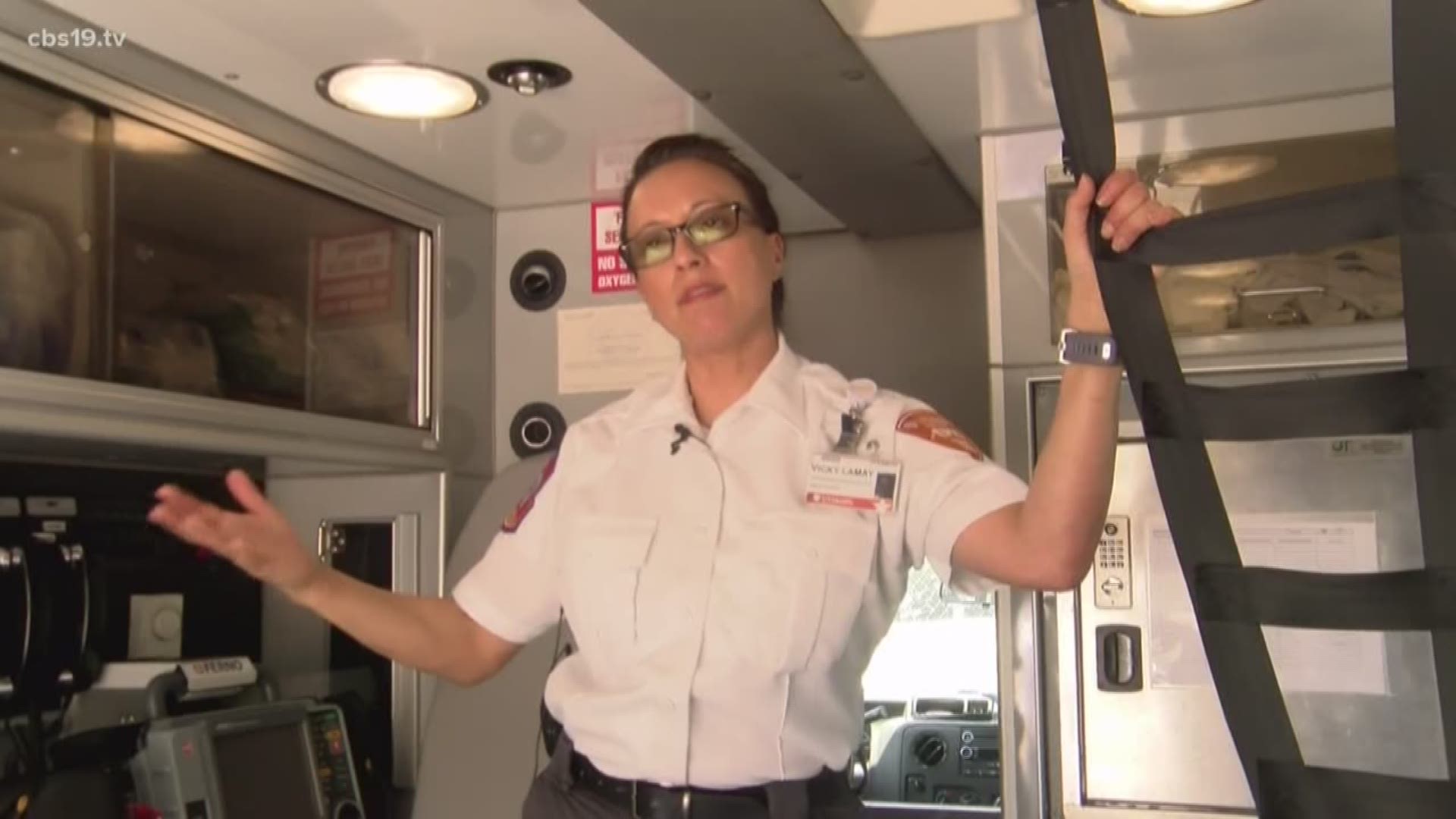TYLER, Texas — With temperatures on the rise in East Texas, it is important to be cautious about how much time you spend out in heat as the risk of heat-related illnesses also increases.
“When you have heat exhaustion, you have a headache, you get really hot, you might feel lightheaded, you may feel nauseated," UT Health East Texas EMS Outreach Coordinator Vicky LaMay said. "If you see any of those signs or systems start cooling off immediately.”
When facing extreme heat for a long period of time, your body starts to find a way to cool itself down. Heat exhaustion comes first but if you cannot get to a cooler area, it can turn into a heat stroke.
“The person is confused, they may not remember where they are, what they're doing, where they're at, you start vomiting, the person may have a seizure, they may even go into cardiac arrest,” LaMay said.
Once it has reached the point of a heat stroke, call 911 immediately and make sure to move into a cooler place until an ambulance arrives. When EMS arrives, they will do everything in their power to get your body temperature back to a normal and stable level.
“If we have a patient back here that suffered a heat exhaustion or heat stroke, it's really hard to tell when it goes from heat exhaustion to heat stroke," LaMay said. "But if we have a patient that's overheated we would put them on our cardiac monitor.”
EMS will also use cooling packs and hook an IV to help cool down. It is important to avoid getting to that stage.
- High body temperature (103 degrees or higher)
- Hot, red, dry or damp skin
- Fast, strong pulse
- Headache
- Dizziness
- Nausea
- Confusion
- Losing consciousness
- Heavy sweating
- Cold, pale and clammy skin
- Fast, weak pulse
- Nausea or vomiting
- Muscle cramps
- Tiredness or weakness
- Dizziness
- Headache
- Fainting
- Heavy sweating during intense exercise
- Muscle pain or spasms
- Painful, red and warm skin
- Blisters on skin
- Red clusters of small blisters that look like pimples on the skin (Usually on the neck, chest, groin or in elbow creases)
Some tips to beat the heat include:
- Drink plenty of water
- Check on friends and neighbors who are at risk for heat-related illnesses: infants; young children; elderly; people with chronic medical conditions
- Find air conditioned places to cool off
- Never leave children or pets in a vehicle
- If you go outside, remember: Hats; sunscreen (SPF 15 or higher); lightweight, light-colored, loose-fitting clothes; water; limit outdoor time
We all know how hot it gets in East Texas, so make sure you are staying hydrated and avoid prolonged exposure to the sun.

